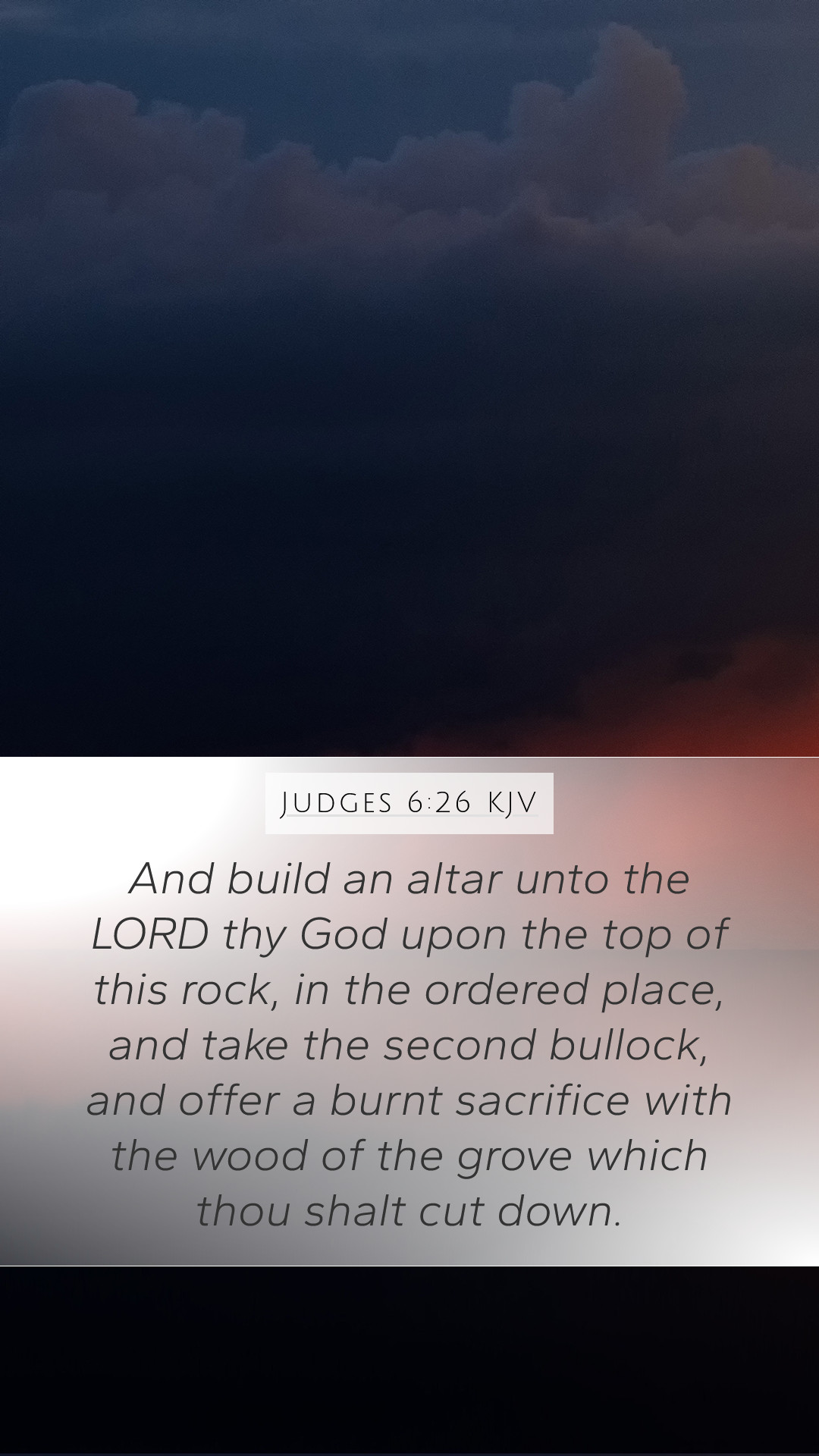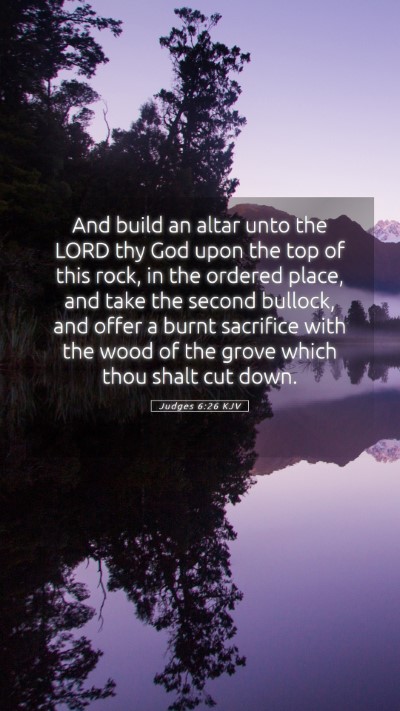Understanding Judges 6:26
Judges 6:26 reads:
"And build an altar unto the Lord thy God upon the top of this rock, in the ordered place, and take the second bullock, and offer a burnt sacrifice with the wood of the grove which thou shalt cut down."
Summary of the Verse
This verse marks a pivotal moment in the story of Gideon, where he is commanded by God to build an altar on a specific site and make a burnt sacrifice. This act is significant as it reflects obedience, worship, and the establishment of God's presence amidst the Israelites, particularly during a time of crisis and idolatry.
Bible Verse Meanings
In analyzing Judges 6:26, we draw insights from various public domain commentaries which highlight several key themes:
- Divine Instruction: God gives clear and specific directions to Gideon, demonstrating His guidance and the importance of following divine will.
- Symbolism of the Altar: Building an altar represents a return to pure worship and acknowledgment of God’s sovereignty, especially after a period of idolatry.
- Use of Sacrifice: The requirement of a burnt offering signifies atonement and dedication to God, fundamental aspects of worship in the Hebrew tradition.
- Destruction of Idolatry: The reference to cutting down the grove signifies the rejection of false gods and the cultural practices associated with them.
Detailed Commentary
Analysis by Matthew Henry
Matthew Henry notes that Gideon's actions are emblematic of the necessity for reformation among the Israelites. He emphasizes the significance of the location and the altar, identifying it as a central point for spiritual renewal in the land. Henry suggests that obedience in building the altar serves as an act of faith and a commitment to serve God alone.
Insights from Albert Barnes
Albert Barnes elaborates on the specific instructions given to Gideon, suggesting that the act of building the altar at this particular site was essential for demonstrating fidelity to God. Barnes also points out the cultural implications of replacing idol worship with true worship, emphasizing the broader context of Israel’s spiritual struggle.
Reflection by Adam Clarke
Adam Clarke reflects on the importance of the sacrifice, noting it as a means of seeking God’s favor and intervention. He insists on understanding the gravity of the situation, where Israel was oppressed by Midian and needed to realign itself with God’s purpose. Clarke further highlights that the destruction of the grove symbolizes a decisive break from sinful practices.
Application of the Verse
For modern readers, Judges 6:26 serves as a call to introspection regarding personal and communal worship practices. It encourages believers to seek out places of worship, both physical and spiritual, that are free from distractions and ungodly influences. Additionally, the verse underscores the importance of sacrifice in the form of dedication and service to God.
Questions for Reflection
- What does this passage reveal about God's desire for His people to worship Him genuinely?
- How can we identify and remove 'idols' in our lives that distract us from our relationship with God?
- In what ways can we apply the concept of sacrifice in our daily walks as Christians?
Related Bible Verses
- Exodus 20:3-5 - Commandments against idolatry
- 1 Kings 18:30-32 - Elijah's altar on Mount Carmel
- Romans 12:1 - Presenting our bodies as living sacrifices
- Hebrews 13:15-16 - The sacrifice of praise and good works
Final Thoughts
Judges 6:26 encapsulates vital themes of obedience, worship, and reform. Through scripture analysis and biblical exegesis, we gain deeper insights that guide us in our personal lives and collective faith communities. This verse is not just part of history; it holds pertinent lessons for how we approach worship and sacrifice today.


